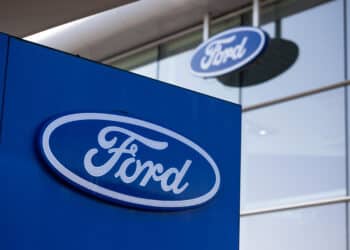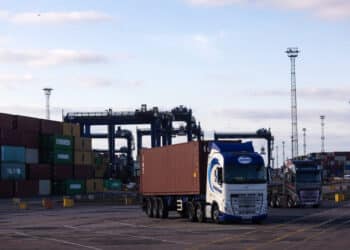Rivian is embedding AI into EVs as it looks to expand offerings and meet customer needs.
Approximately 20% of the miles driven by Rivian’s second-generation fleet are autonomous, but the company expects that to increase to 60% to 70% over the next few years, founder and Chief Executive RJ Scaringe said during the company’s March 18 presentation at the Nvidia GTC Conference.
“We have to build service infrastructure, which means there’s a large diagnostics team, there’s a customer service team and lots of service technicians,” he said. “We have hundreds of locations, Rivian locations, that do different tasks, whether it be charging, service, sales, distribution, and so the beauty is we’re actually designing that architecture for all this infrastructure through the lens of a world where we have to build decades of infrastructure; rebuilding it with AI.”
With the advances in AI over the past decade, Rivian is looking to build its business and vehicles from the ground up with “an intense focus on” AI integration, Scaringe said.
“In a very obvious way, it integrates into the vehicle, where the vehicle increasingly drives itself with our [second-generation] vehicles,” he said.
Rivian intends to capitalize on improvements in AI and data collection in the newest iteration of its vehicles — relaunches of the R1T truck and R1S SUV — to reach the autonomy goals for its EVs, Scaringe said.
More computing power and an “incredible perception stack” in those vehicles allow for a hands-free feature for driving on highways, he said.
Overcoming supply chain issues
Rivian launched the R1T truck in October 2021 and the R1S SUV a month later, and then launched a commercial van developed with Amazon a month after that. But the OEM experienced supply chain problems during the pandemic that limited the company’s performance, Scaringe said.
“Each vehicle has around 30,000 discrete components, and any single one of those components can stop production,” he said. “When you’re short one item … you don’t make as many [units] and that hurts you on revenue.”
With the supply chain issues in the past, Rivian intends to roll out the more advanced AI EVs with fewer issues, Scaringe said.
“When we had shortages on about 2% of the vehicle [parts], which is great, you said we had 98% [of parts],” he said. But “the problem is said 98% [of parts]. We had warehouses filling up with parts because of supply relationships, and we did deal with that for our first time, coming out, but our next product … it’s a very different supply chain.”
Early Bird pricing for the third annual Equipment Finance Connect ends March 28. Taking place at the JW Marriott Nashville on May 14-15, 2025, this is the only event for both equipment dealers and finance providers. Learn more and register here.









